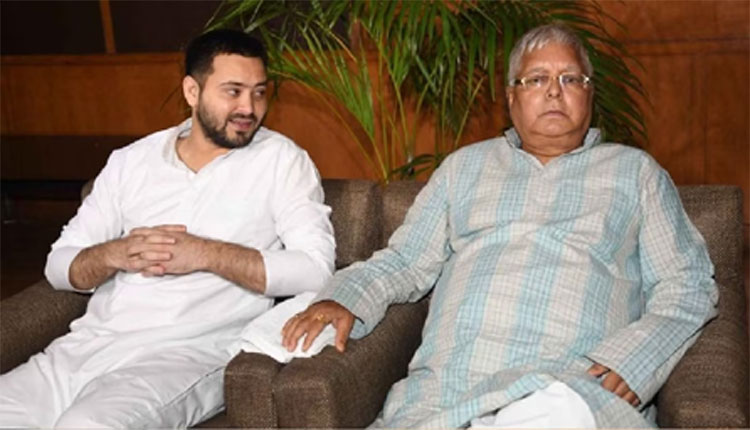Patna: Things are starting to get intriguing as Bihar prepares for the Assembly elections in 2025. People are discussing election fairness, the updates to the Election Commission’s voter list, and allegations regarding illegal immigrants instead of the usual focus on caste-based politics. While political strategist Prashant Kishor is attempting to stir things up with his ideas, opposition leaders Rahul Gandhi and Tejashwi Yadav are battling Chief Minister Nitish Kumar and the BJP over these issues.
A significant controversy surrounds the Election Commission’s voter list update ahead of the October and November elections. Rahul Gandhi accuses the BJP of vote theft in order to support the NDA, claiming that the Election Commission is conspiring with them to rig the lists. In a post on X, he questioned the destruction of CCTV evidence and demanded transparency on digital voter lists. He says he will concentrate on election fraud during his planned campaign tour in Bihar, which begins on August 17.
Tejashwi Yadav supports Gandhi and even calls for a revolution against the Election Commission, which he describes as a puppet. He organised a demonstration against the voter list update in July, arguing that it unfairly singles out the poor, Dalits, and members of the lower classes, particularly in Muslim communities. The Opposition is alarmed by the removal of 5.6 million voters from the lists —including those who have moved, passed away, or have duplicate registrations. They claim that the procedure may prevent millions of people from casting ballots, particularly the impoverished and migrant workers. Some members of his group disagree with Yadav’s suggestion to boycott the elections.
The BJP and the NDA, led by Nitish Kumar, claim that these charges are merely political ploys. Amit Shah claimed that by supporting illegal immigrants, Gandhi and Yadav are engaging in vote-bank politics. In an attempt to win votes in the Seemanchal region, Shah claimed that illegal immigrants were not allowed to vote. BJP leaders accuse the opposition of shielding illegal immigrants and claim that only Indian citizens should cast ballots.
By offering free goods and initiatives, Nitish Kumar is attempting to regain the support of voters. He is reserving 35% of state government jobs for women and providing free electricity to many households. In Bihar, Narendra Modi recently began some infrastructure projects, highlighting the NDA’s emphasis on development.
Politics, however, appears to be evolving. Journalist Omprakash Ashk claims that during his 20 years in office, Nitish Kumar has altered conventional voting patterns, even though caste is still significant. Kumar’s fan base has helped him win over people outside his caste, like some Muslims. However, the RJD is losing support to other parties because their core voter base hasn’t increased. The RJD is trying to gain more supporters, but their efforts have not been as effective as they wanted.
With his Jan Suraaj Party, Prashant Kishor is attempting to upend Bihar’s political system. Popular among young people, Kishor’s topics include healthcare, employment, education, and halting migration. Kishor is attempting to win over voters who haven’t chosen a side by claiming that he is different from both the opposition and the NDA. Although Kishor’s rallies are drawing sizable crowds, which indicates that people want change, some analysts do not believe Jan Suraaj will win many seats in the election. According to political analyst R. Dileep Reddy, Kishor is forcing other parties to reconsider their strategies.
Tension is rising as a result of the BJP’s assertion regarding illegal immigrants in Seemanchal. Bihar has never faced this problem before, but other states have. The RJD claims that the BJP is using it to split voters. However, the problem is becoming more visible in Seemanchal, where the NDA wants to bring Hindu voters together.
According to polls, the race is close. According to one poll, the opposition has roughly 36% of the vote, while the NDA has roughly 49%, particularly among women and upper castes. Although Kishor has approximately 17% support, Tejashwi Yadav could be more popular than Nitish Kumar as Chief Minister, especially among young people. People’s top concerns are unemployment, price increases, and corruption, indicating that government performance is more important than caste allegiance.
Bihar is at a pivotal moment as voters prepare to cast their ballots. The typical caste arguments have been pushed aside by the voter list problems, fraud allegations, and the immigration debate, forcing parties to concentrate on issues like justice and governance. It’s unclear if the current situation represents a short-term or long-term change in Bihar politics. The 2025 elections will be about more than just choosing the leaders, but for the time being, the battle lines are established.



Comments are closed.